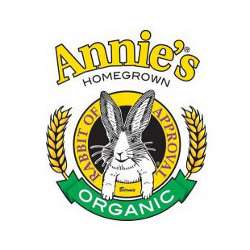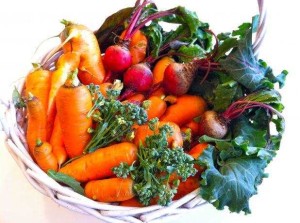Boycott Annie’s Homegrown Organic
 Annie’s Homegrown Organic, the company whose?mission?is to “cultivate a healthier and happier world by spreading goodness through nourishing foods, honest words and conduct that is considerate and forever kind to the planet,” as of this month is owned by General Mills. ?The same General Mills who spends millions to defeat GMO labeling initiatives in California and is a member of the Grocery Manufacturers Association (GMA) which is suing the state of Vermont for passing a GMO labeling bill.
Annie’s Homegrown Organic, the company whose?mission?is to “cultivate a healthier and happier world by spreading goodness through nourishing foods, honest words and conduct that is considerate and forever kind to the planet,” as of this month is owned by General Mills. ?The same General Mills who spends millions to defeat GMO labeling initiatives in California and is a member of the Grocery Manufacturers Association (GMA) which is suing the state of Vermont for passing a GMO labeling bill.
Celiac Disease, a Common, but Elusive Diagnosis
Celiac disease, an autoimmune reaction to dietary gluten that can destroy the small intestine, regularly goes undetected.? The overwhelming majority of people with celiac disease remain undiagnosed. The most recent data show that only 17 percent of Americans with the disease know they have it.? Yet awareness of the problem has never been greater. A main reason for this lag in detection is the long and confusing list of signs and symptoms, some of which may be mild enough to be easily ignored or attributed to another condition, like irritable bowel syndrome or an allergy. “Celiac disease is now five times more common than it was 50 years ago, and that?s not just the result of better diagnoses,? said Dr. Murray. Read the whole article.
U.S.D.A. to Start Program to Support Local and Organic Farming
 Due to consumer interest and concern in knowing how, where, and by whom their food is grown, the local food movement is one of the fastest growing segments of agricultural business.? ?These types of local food systems are the cornerstones of our plans to revitalize the rural economy,? Tom Vilsack, the agriculture secretary, said in a telephone interview. ?If you can connect local produce with markets that are local, money gets rolled around in the local community more directly compared to commercial agriculture where products get shipped in large quantities somewhere else, helping the economy there.? The United States Department of Agriculture (USDA) has announced a spending budget of $52 million to support local and regional food systems like farmers? markets and food hubs as well as to spur research on organic farming. Read the article.
Due to consumer interest and concern in knowing how, where, and by whom their food is grown, the local food movement is one of the fastest growing segments of agricultural business.? ?These types of local food systems are the cornerstones of our plans to revitalize the rural economy,? Tom Vilsack, the agriculture secretary, said in a telephone interview. ?If you can connect local produce with markets that are local, money gets rolled around in the local community more directly compared to commercial agriculture where products get shipped in large quantities somewhere else, helping the economy there.? The United States Department of Agriculture (USDA) has announced a spending budget of $52 million to support local and regional food systems like farmers? markets and food hubs as well as to spur research on organic farming. Read the article.

Comments are closed.